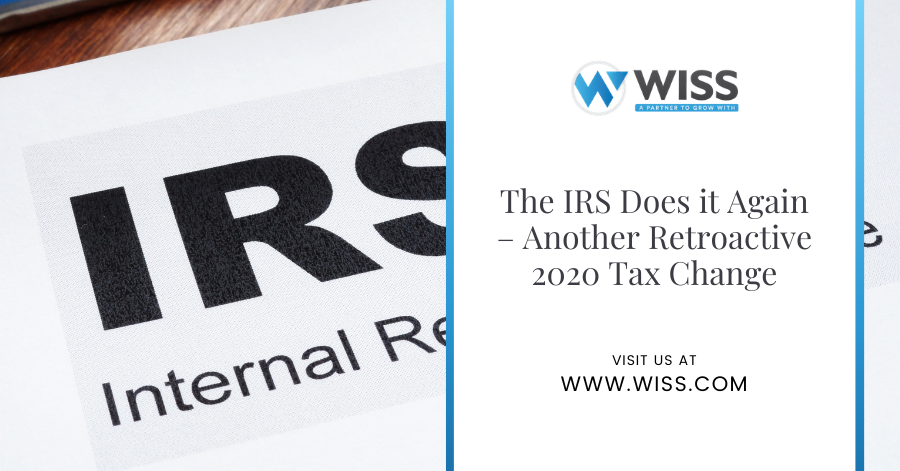First the unemployment compensation exclusion…now this. With less than a week until the original tax filing deadline, the IRS announced the suspension of the requirement to repay excess advance payments of the 2020 Premium Tax Credit (“PTC”) which was a provision rolled out with the American Rescue Plan Act of 2021 (“ARPA”). Unfortunately, being that the unemployment compensation exclusion was at the forefront of the ARPA, the PTC provision took the backseat, and only now are most finding out about this favorable change for 2020 tax returns.
You are eligible for the PTC if you meet all of the following requirements:
- Have household income that falls within a certain range
- Do not file a tax return using the filing status of married filing separately
- Cannot be claimed as a dependent by another person
- Meet additional requirements:
- Have health insurance coverage through a Health Insurance Marketplace
- Are not eligible to get affordable coverage though an eligible employer-sponsored plan that provides minimum value
- Are not eligible for coverage through a government program
- Pay the share of the premiums not covered by advance credit payments
Eligible taxpayers should utilize their Health Insurance Marketplace Statement (Form 1095-A), to complete Form 8962, Premium Tax Credit, when filing their tax return to figure the amount of the credit and reconcile it with the advanced credit. If the result on Form 8962 is a net PTC, the process remains unchanged; file Form 8962 with your 2020 tax return and claim the refundable credit. Consequently, taxpayers that figure an excess PTC for 2020 are not required to file Form 8962 or report an excess advance Premium Tax Credit repayment on their 2020 Form 1040/Form 1040-SR, Schedule 2, Line 2, when they file.
Like the unemployment rollout, taxpayers who have already filed their 2020 tax return and who have excess PTC for 2020 do not need to file an amended tax return or contact the IRS. The IRS will automatically calculate and reduce the excess PTC repayment amount to zero with no further action needed by the taxpayer. In addition, the IRS will reimburse people who have already repaid any excess advance Premium Tax Credit on their 2020 tax return.
If you received a letter about a missing Form 8962 and you have excess PTC for 2020, the IRS advises that you should disregard the letter; the IRS will process tax returns without Form 8962 for tax year 2020 by reducing the excess advance premium tax credit repayment amount to zero.
This change applies only to reconciling tax year 2020 PTC and not any prior or future tax years.

 Previous
Previous


